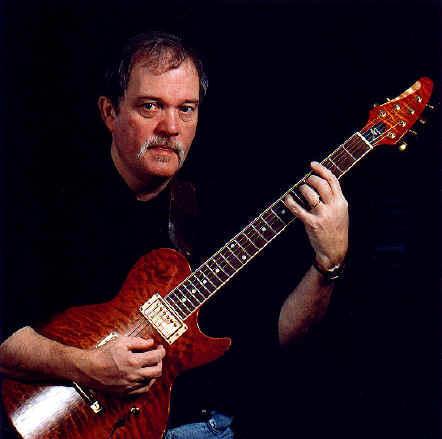John Abercrombie (John Laird Abercrombie)

John Abercrombie graduated from Berklee in 1967 and briefly attended North Texas State University before moving to New York in 1969. He quickly became one of the “most in-demand session players,” recording with Gil Evans in 1974, Gato Barbieri in 1971, and Barry Miles in 1972 among others. In 1969, he joined Dreams, one of the first jazz-rock bands, which rose to prominence in the late 60s and early 70s and featured the Brecker Brothers and drummer Billy Cobham. He also recorded on several of Cobham’s albums, Crosswinds, Total Eclipse and Shabazz. Abercrombie’s following began to grow at this point, largely due to Dreams’s growing success. They shared billing with such rock acts as the Doobie Brothers, and Abercrombie found his career taking a direction he had not expected. “One night we appeared at the Spectrum in Philadelphia and I thought, ‘what am I doing here?’. It just didn’t compute.” In 1973 Manfred Eicher, the German producer and founder of ECM Records, invited John Abercrombie to record for ECM. Abercrombie recorded his first solo album, Timeless, in 1974 with drummer Jack DeJohnette and Hammond organist Jan Hammer. The album was well received and critically acclaimed and marked the beginning of his fruitful relationship with ECM. The label’s understated, subdued music was representative of the music Abercrombie continued to make throughout his career. In 1975 he formed the band Gateway with DeJohnette and bassist Dave Holland, recording the albums Gateway (1976) and Gateway II (1978).
After the Gateway albums, John Abercrombie changed his playing style and instrumentation, moving toward a more traditional format. He recorded Arcade, The Abercrombie Quartet, and M with pianist Richie Beirach, bassist George Mraz, and drummer Peter Donald. Abercrombie said of this quartet, “it was extremely important to have that group…it was my first opportunity to really be a leader and write consistently for the same group of musicians.” During the mid-1970s and into the 1980s, he also contributed to ensembles led by DeJohnette and took part in a number of other sessions for ECM, occasionally doubling on electric mandolin. He also toured and recorded two albums (Sargasso Sea, 1976 and Five Years Later, 1981) with guitarist Ralph Towner. During the mid-1980s, he continued to play standards with Mraz, and he played in a bop duo with guitarist John Scofield. John Abercrombie began experimenting with a guitar synthesizer in 1984 while recording in a trio with Marc Johnson on bass and Peter Erskine on drums and while working with Paul Bley in a free jazz group. He played the guitar-synth until around 1990. The synthesizer allowed him to play, as he described it “louder, more open music.” Abercrombie’s trio released three albums during this time showcasing the guitar-synth: Current Events (1986), Getting There (1987) with Michael Brecker, and John Abercrombie, Marc Johnson, & Peter Erskine (1989).
The 1990s and 2000s marked a time of constantly changing associations. In 1992, John Abercrombie, drummer Adam Nussbaum and Hammond organist Jeff Palmer made a free-jazz recording. He then started a trio with Nussbaum and organist Dan Wall and released While We Were Young (1992), Speak of the Devil (1994), and Tactics (1997). He added trumpeter Kenny Wheeler, violinist Mark Feldman and saxophonist Joe Lovano to the trio to record Open Land (1999). The Gateway band reunited for the album Homecoming (1995). Abercrombie died of heart failure in Cortlandt Manor, New York, at the age of 72.John
Born
- December, 16, 1944
- USA
- Port Chester, New York
Died
- August, 22, 2017
- USA
- Cortlandt Manor, New York
Cause of Death
- heart failure


